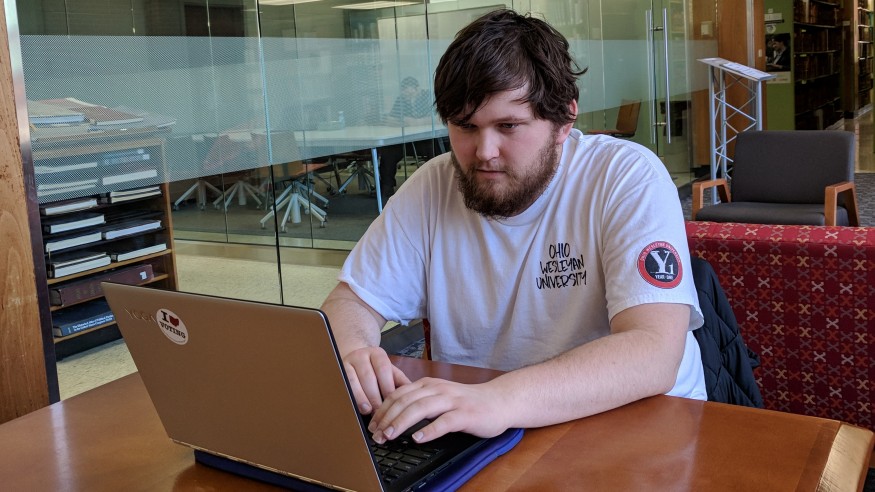
A Summer Splash!
Ohio Wesleyan’s Summer Session Grows to 27 Online, 27 On-Campus Courses
Registration for Ohio Wesleyan University’s 2018 summer session opens April 12 with 27 online and 27 on-campus courses available to help students “catch up, get ahead, or change direction” as they work toward graduation, says Dale Brugh, associate dean for innovation.
“We launched our online program in 2016 with six courses,” says Brugh, Ph.D. “Students liked the convenience of being able to take classes from anywhere in the world with internet access. The online courses make it easier for students to complete off-campus internships, research programs, and other OWU Connection experiences. In some cases, the courses also help students accelerate their time to graduation, reducing their overall costs.
“In addition, Ohio Wesleyan’s online courses have created welcome opportunities for faculty to explore new technologies and new ways of teaching with positive spillover into their face-to-face classes,” says Brugh, noting that this year’s summer session will include both five- and 10-week courses to better meet students’ needs.
One student benefiting from OWU’s summer courses is Greg Margevicius ’20 of Cleveland, Ohio, a double-major in finance economics and politics and government. Margevicius took Accounting 217 online last summer while living at home.
“I took it because it was required for my major and because I didn’t want to use a spot in the fall to take it,” says Margevicius, who is planning a career in financial advising/private wealth management. “I (also) took the course online because I had an internship back home. (He interned in the Cleveland office of Baird Private Wealth Management, working in security analysis and portfolio construction.)
“It was interesting,” Margevicius says of the online course. “I thought it allowed me to learn in a way that was more my style and was more convenient than the traditional classroom style.”
Margevicius’ course was taught by Justin P. Breidenbach, MAcc, CPA, CFE, assistant professor of accounting.
“I did have spillover into my traditional courses,” Breidenbach says of his online teaching. “Many of the resources – guided problems, short videos, recorded lectures, etc. – were useful to students in the online course. Based on the usefulness and preferences of students, I have carried many of these resources into my traditional courses to provide students with additional resources outside of the classroom.
“While not all resources are required to be used for the traditional class,” Breidenbach says, “it allows students to find delivery methods that work well for them, and it also helps me when working with the students one-on-one or in small group settings. I can determine if it is more efficient to work with students based on preferences for audio, visual, working through problems, or just talking about how theories/rules are applied in the real world.”
Brugh says OWU faculty have been working with the International Institute for Innovative Instruction at Franklin University to develop their online courses. OWU faculty create the learning objectives, activities, assignments, and assessments, and Institute personnel provide support in translating the courses into effective online experiences for students.
The development of OWU’s online courses was supported with gifts from alumni Robert P. Bauman ’53 and David P. Miller ’54. Miller, who continues to support the initiative, has said he is pleased the courses enable students “to keep learning during the summer while they work, complete off-campus internships, and continue to build successful futures.”
Learn more about Ohio Wesleyan’s summer session courses, both online and on-campus, at www.owu.edu/summer.
